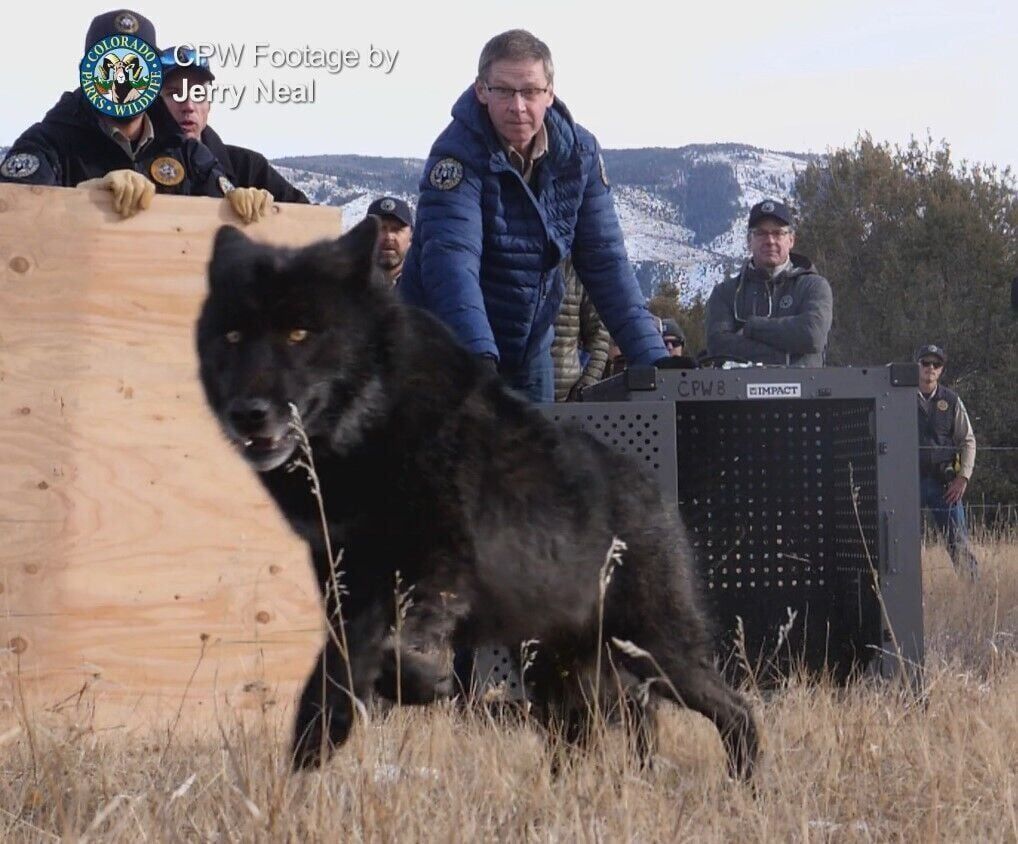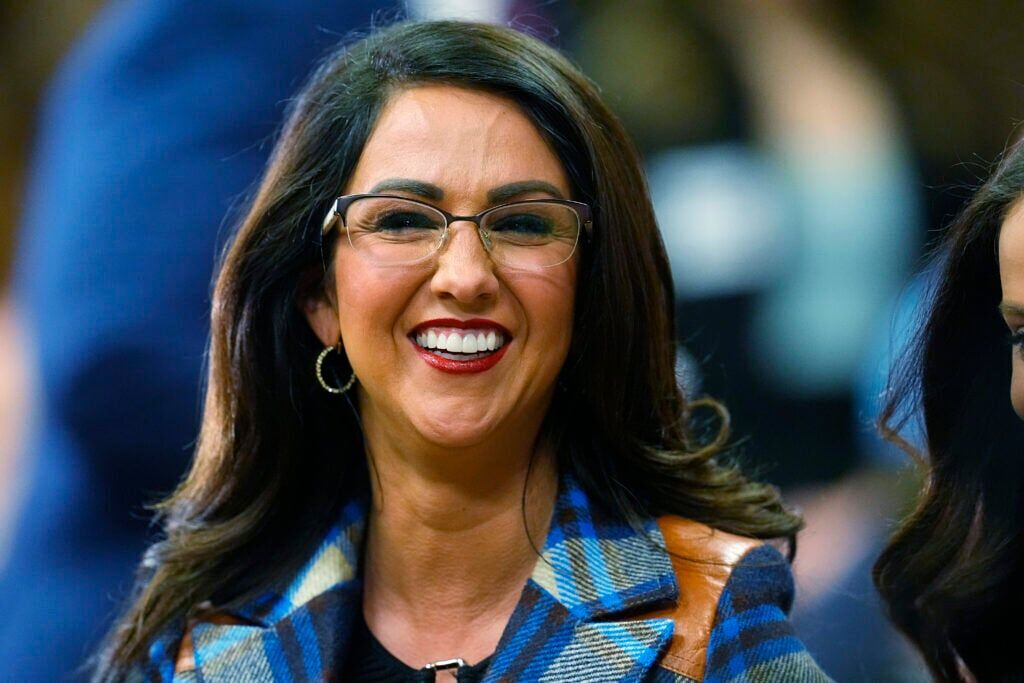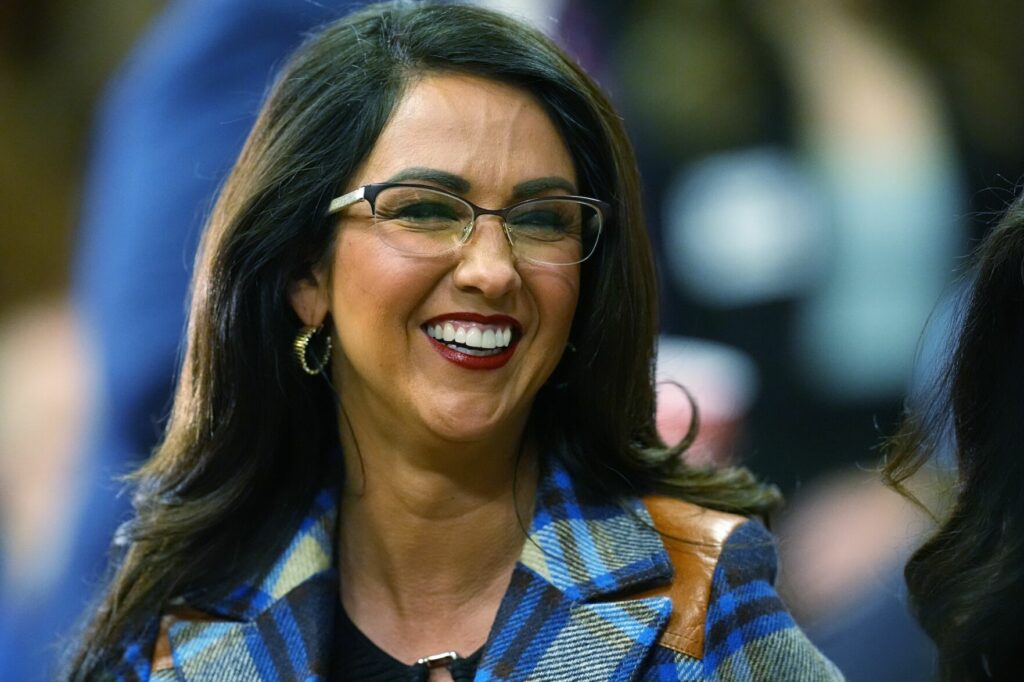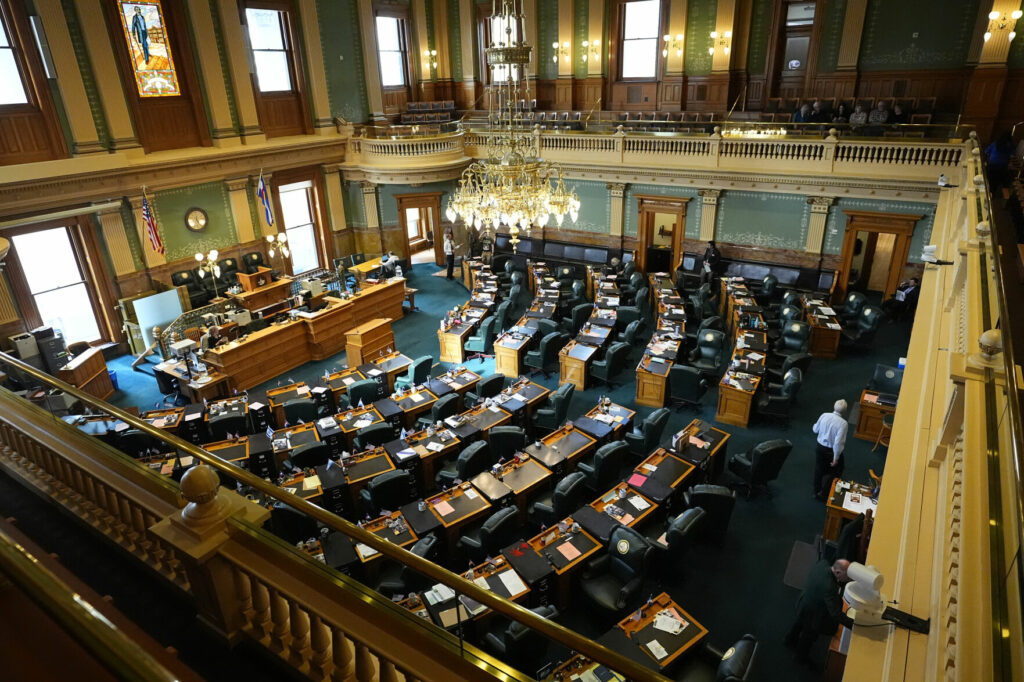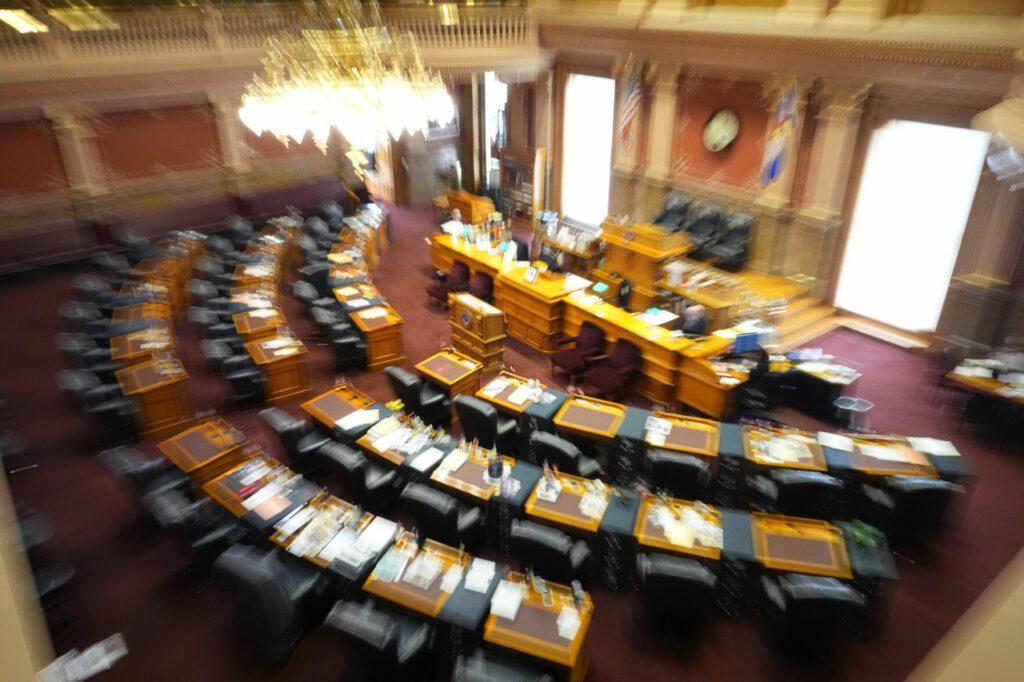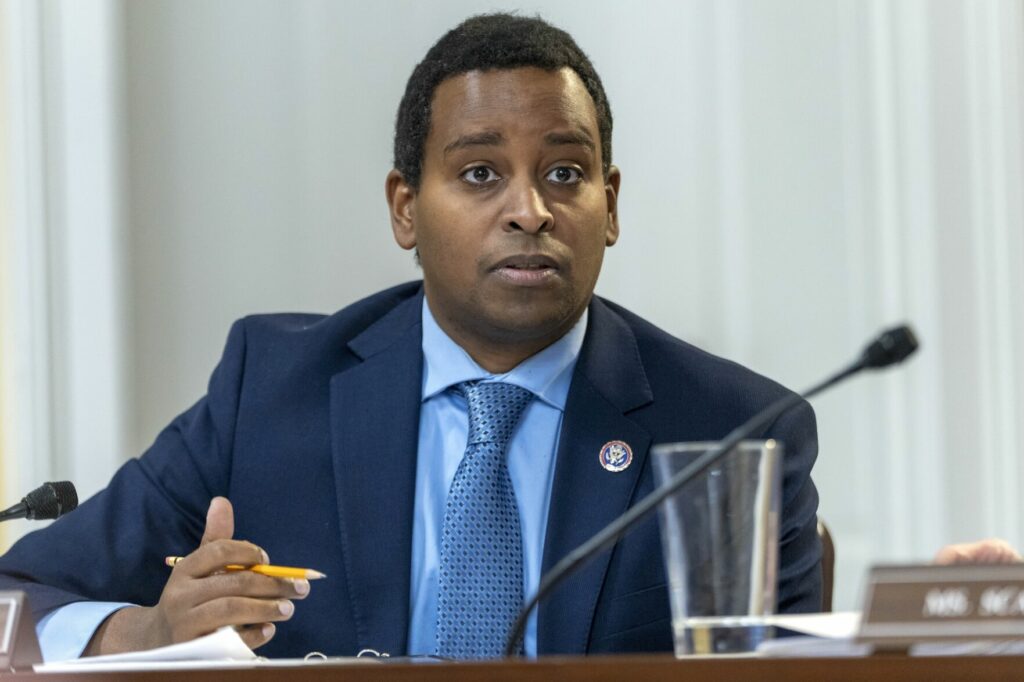Gov. Jared Polis’ appointees to parks and wildlife commission draws criticism
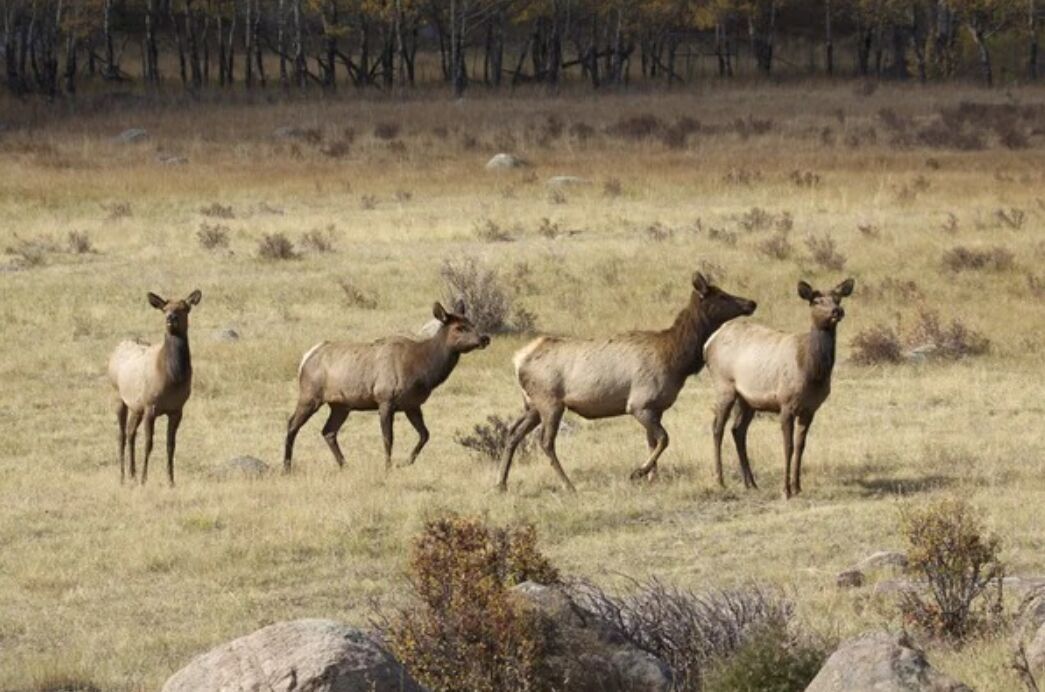
Yet another controversy arose out of Gov. Jared Polis’ appointments to the state parks and wildlife commission last week after he picked the author of Colorado’s wolf conservation plan as a representative for hunters and anglers.
The issue, critics said, is that this appointee isn’t a well-known hunter or angler, supporting their claim that Polis picks individuals whose backgrounds appear to contradict the stated goals of the commission.
The governor is standing by his decision.
It’s not the first time Polis has appointed someone who isn’t well known for being a hunter or angler to the commission. Back in 2019, his choice of Betsy Blecha, a former Jackson County commissioner, raised eyebrows because she had little to no experience as a hunter or angler and had moved to the Eastern Plains – an area she was supposed to represent on the commission – just a few months before the appointment.
This time, the appointee for the sportspersons spot on the commission is Gary Skiba, a former wildlife biologist for the Department of Wildlife (the predecessor to Colorado Parks and Wildlife) who has close ties to organizations that sponsored the wolf ballot measure in 2020.
Skiba is not well-known as a sportsman, hunter or angler. He is more prominently known as the author of the effort to bring wolves to Colorado, one that hit yet another snag last week, when the state of Idaho said “no” to Colorado getting wolves from that state.
Skiba, a member of Defenders of Wildlife, was a named plaintiff in a 2021 lawsuit against the state of California in its efforts to delist the gray wolves from the endangered species list in that state. A filing from the plaintiffs pointed out that Skiba was “the primary author of Colorado’s wolf conservation plan, has participated in field surveys for wolves in Colorado, and has been active in the ongoing effort to restore wolves to the southern Rocky Mountains.”
A coalition of wildlife conservation groups had suggested that Polis pick someone else.
Skiba’s appointment, which came on Monday, just two days before the commission met in Gunnison, drew immediate condemnation from several quarters.
Grant Jerry of Woodland Park speculated about the message Polis is sending to hunters and anglers with Skiba’s appointment during the commission’s July 20 meeting.
“Hunters and anglers are some of the strongest voices for wildlife conservation and habitat preservation, incredible partners when united with other outdoor users and environmental advocates,” Jerry said.
Hunters and anglers hold their sporting legacy very near and dear, “and we will not stand aside as powerful anti-hunting groups, veiled as animal rights activists, attempt to dismantle (or) discredit the North American Model and exclude hunters from wildlife management, while slowly whittling away at hunting opportunities for Coloradans,” he told the commission.
From the ‘non-traditional wildlife management’ arena
The North American Model of wildlife conservation is a set of principles that promotes sustainability of species populations and the concept that that wildlife is a public trust.
Jerry further claimed that the commission “openly disparages hunters and seeks to perpetuate misinformed, negative stereotypes of hunters.”
Jerry said Polis has sought out commissioners with little to no hunting background and with long histories with anti-hunting groups. Polis, he added, ignored the recommendation from a coalition of wildlife conservation and hunting organizations.
“It was a clear message from the governor’s office, hunters and anglers don’t matter,” Jerry said.
The coalition had recommended Patt Dorsey, director of conservation operations for the National Wild Turkey Federation and who held several positions with Colorado Parks and Wildlife.*
The governor’s office refused to answer when Colorado Politics asked three times why he chose Skiba over Dorsey.
Gubernatorial spokesman Conor Cahill instead said the governor has expanded opportunities for hunting and angling and “has taken comprehensive steps to protect wildlife for hunters and anglers.”
“I wouldn’t have picked ’em,” said Dan Gates, who has spent decades volunteering with wildlife management groups and currently serves as president of the Colorado Trappers and Predator Hunters Association.
Gates said he’s known Skiba and Murphy from his interactions with wildlife management groups. He added that he’s trying to be a “glass half full” – albeit a small glass – kind of guy in this situation.
“I would like to think they’re taking the best opportunity they can to do what’s right and necessary for Colorado wildlife. I’m willing to give them the benefit of the doubt until they prove otherwise,” Gates told Colorado Politics.
That said, Gates added, “if you look at the majority of appointments under this governor, they continually become more and more from the non-traditional wildlife management arena.”
Gates also believes Polis does not support the North American wildlife management model. He accused Polis and his husband, Marlon Reis, an animal rights activist, of preferring to scrap it altogether.
Sport fishing and hunting advocates claim the governor is stacking the commission with animal welfare advocates as part his effort to move away from the North American model. In the past, his appointments have included a former attorney for Wild Earth Guardians and an Aspen farm educator, who is supposed to represent production agriculture.
The trend toward appointing people from the animal rights space appears to include two other appointments last week: ?Jessica Beaulieu, the manager and an attorney with the University of Denver’s Animal Law program, which advocates on behalf of “non-human animals.”
Polis’ third appointment is Jack Murphy, co-founder and president of Urban Wildlife Rescue. His bio notes that Murphy is a “Wildlife Control Operator who resolves wildlife conflicts using only non-lethal and humane methods of wildlife eviction and exclusion techniques when education and/or co-existence are not a viable option.”
The last two were named as representatives of outdoor recreation and parks utilization. Neither appears to have any background in recreation or wildlife management, a core mission of Colorado Parks and Wildlife.
Moving away from the North American Model?
The North American Model, as championed by the U.S. Fish and Wildlife Service, is based on the belief that wildlife “is a public trust, an American birthright, and that wildlife species need to be managed in a way that their populations will be sustained forever.” The model espouses seven principles, most notably, that “every citizen has an opportunity, under the law, to hunt and fish in the United States and Canada.”
US Fish & Wildlife recommends people buy hunting and fishing licenses, which it said helps support state agencies, as well as federal efforts. It even suggests introducing others to hunting and fishing, which it said supports conservation.
“As you can see, the relationship between hunters, anglers and wildlife conservation is truly special and incredibly intertwined,” USFWS said last year.
Critics of the governor said disparaging hunters and anglers, or trying to cut back on those activities, could have a cost to CPW, as well.
The department receives 90% of its financial support – around $190 million annually – from cash funds, with $95 million coming from hunting and fishing licenses.
CPW’s wildlife operations, including the upcoming management of gray wolves, are funded almost entirely by those licenses, according to a November 2022 analysis by the Joint Budget Committee staff.
Those cash funds also compensate ranchers when their livestock are killed by predators, such as bears and mountain lions. The state, for example, paid out $548,621 in FY 2022 for those claims, with 70% for livestock kills.
However, ranchers whose livestock are killed by wolves will be compensated out of several other cash funds unrelated to the licenses.
While the trio of new appointees attended their first commission meeting last week, another meeting could be just as important – at the state Senate, where they will go through confirmation hearings in the 2024 session.
That will put Skiba in the same room as Sen. Dylan Roberts, D-Eagle, who chairs the Senate Agriculture and Natural Resources Committee. The two found themselves on opposite sides during the 2023 session, when Skiba testified against Senate Bill 256, which Roberts sponsored and which was intended to put legal guardrails around the process for reintroduction wolves.
Polis vetoed the bill when it reached his desk.
Roberts issued a warning of sorts to the three new appointees: Be sure they represent the interests for which they have been appointed.
Roberts, who wields considerable influence on the ag committee, said he has gotten a lot of calls from constituents and people from across the state about the appointments.
Roberts told Colorado Politics he plans to reach out to all three, learn about their backgrounds and “make sure before I vote that they fit the statutory guidelines of the seats they were appointed to.”
He added he hopes they recognize they need to be advocates for the interests they’re supposed to represent.
Correction: A previous version of this story misidentified Patt Dorsey.






